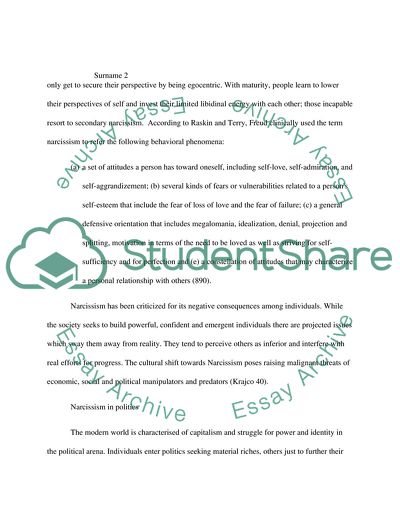Cite this document
(Narcissism in Government Policies and How It as a Diagnosis can Affect Coursework, n.d.)
Narcissism in Government Policies and How It as a Diagnosis can Affect Coursework. Retrieved from https://studentshare.org/politics/1875570-narcissistic-politics
Narcissism in Government Policies and How It as a Diagnosis can Affect Coursework. Retrieved from https://studentshare.org/politics/1875570-narcissistic-politics
(Narcissism in Government Policies and How It As a Diagnosis Can Affect Coursework)
Narcissism in Government Policies and How It As a Diagnosis Can Affect Coursework. https://studentshare.org/politics/1875570-narcissistic-politics.
Narcissism in Government Policies and How It As a Diagnosis Can Affect Coursework. https://studentshare.org/politics/1875570-narcissistic-politics.
“Narcissism in Government Policies and How It As a Diagnosis Can Affect Coursework”. https://studentshare.org/politics/1875570-narcissistic-politics.


